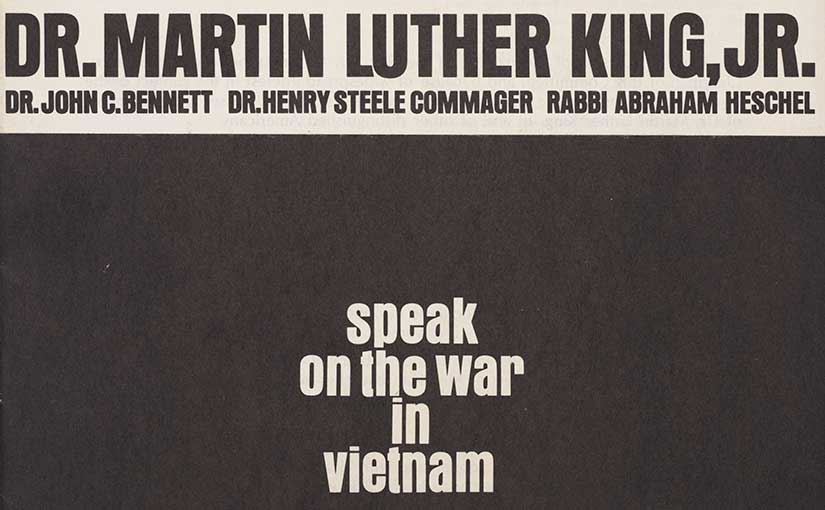by Rachel Bohlmann, American History Librarian and Curator
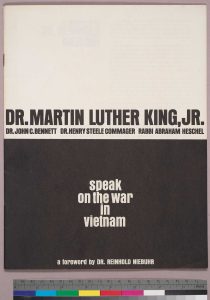
To commemorate Memorial Day 2025, Rare Books and Special Collections highlights an anti-war booklet published in 1967 by Clergy and Laymen Concerned About Vietnam (CALCAV).
CALCAV formed at the end of 1965 for clergy and laity from three mainline American religious traditions—Protestant, Catholic, and Jewish—to work ecumenically to express dissent from the US government’s policy in Vietnam and, eventually, in other conflicts around the world. On April 4, 1967 CALCAV organized a mass meeting at the interdenominational Riverside Church in New York City. The Rev. Dr. Martin Luther King, Jr., who had just accepted the co-chairmanship of CALCAV, gave one of his most important statements against the war in this speech, “Beyond Vietnam.” He was joined by other well-known clergy and public intellectuals, including the historian Henry Steele Commager and Rabbi Dr. Abraham Heschel of the Jewish Theological Seminary of America. Three thousand people attended the event.
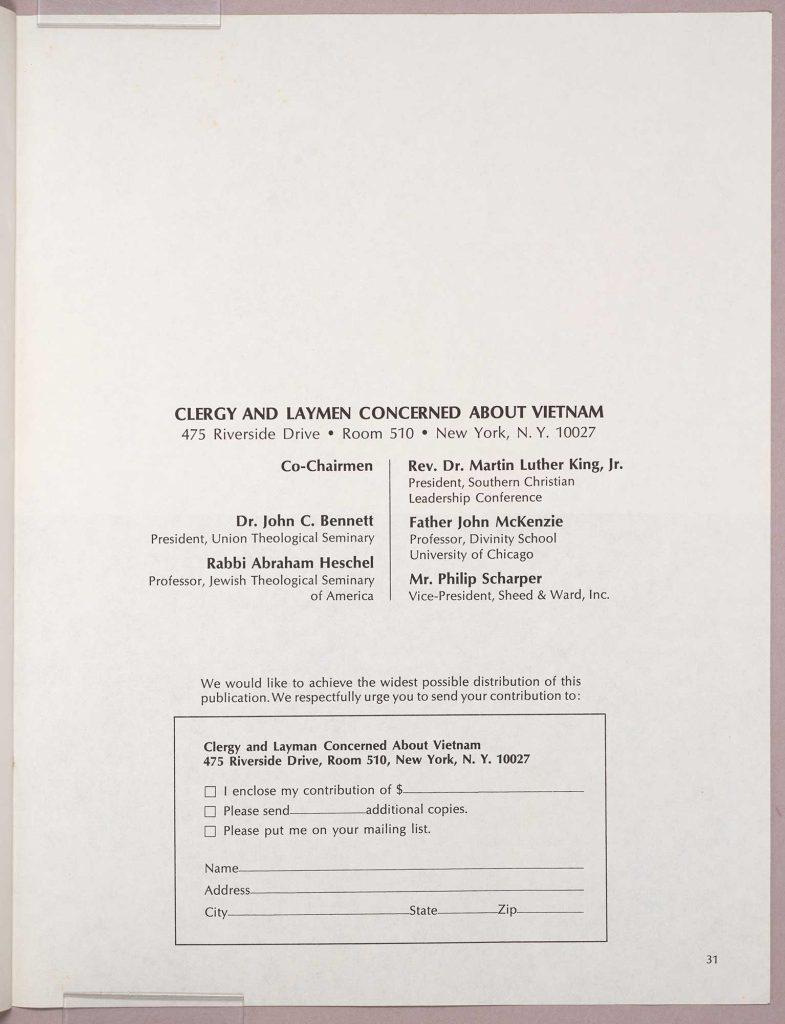
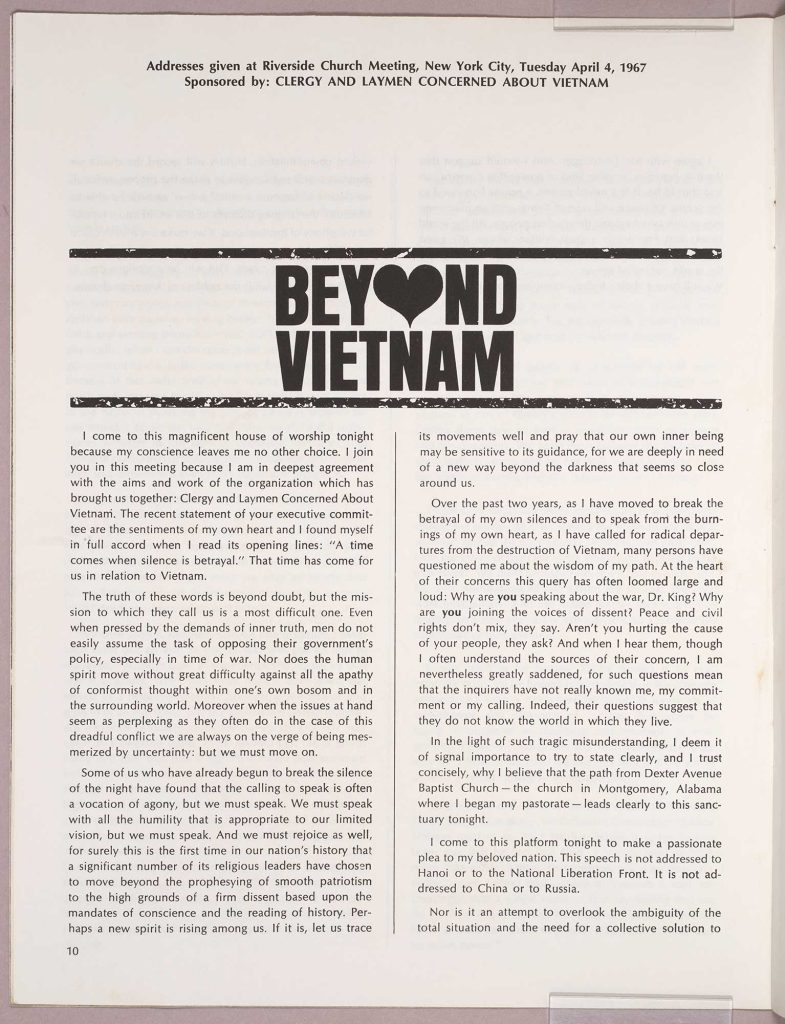
Wanting to capitalize on King’s new role in the organization and public attention from the Riverside Church program, CALCAV quickly published 100,000 copies of this 31-page booklet. In the introduction, CALCAV declared “We feel that a time comes when silence is betrayal. That time has come for us in relation to Vietnam.” In the booklet, the organization included the four addresses given at that program as well as a speech King had made a few months earlier in Los Angeles, “The Casualties of the War in Vietnam.”
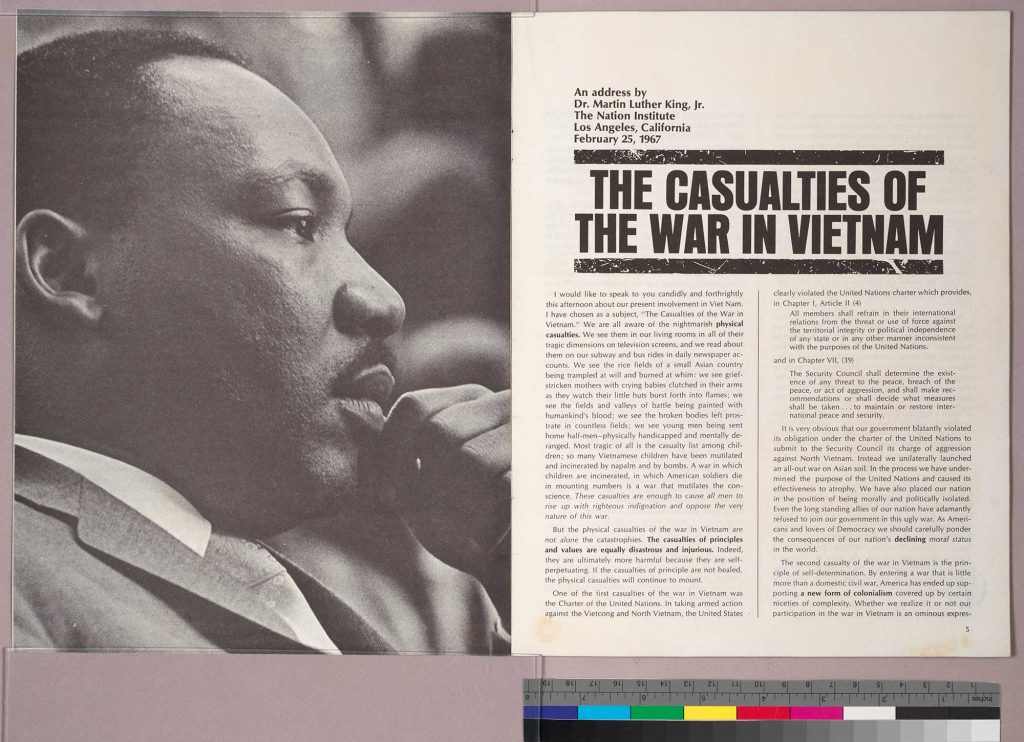
To underscore the group’s seriousness and broad cultural reach, CALCAV invited the public intellectual, theologian, and Union Theological Seminary professor, Reinhold Niebuhr to write the foreword to the publication. In it, the pastor and ethicist observed that although some Americans regarded US involvement in Vietnam as part of the nation’s international responsibility, Niebuhr argued that America in Vietnam was “an example of the ‘illusion of American omnipotence.'” He also defended King’s position of nonviolent resistance to evil, calling it “a real contribution to our civil, moral and political life.”
CALCAV used its publication to defend King from criticism. His anti-war stance had attracted censure from both allies in the civil rights movement and critics in the mainstream press. Just two days after the Riverside Church meeting the New York Times attacked the minister’s position in an editorial (April 7, 1967). CALCAV included a Q&A section at the end of the booklet in which they invited King’s fellow speakers to respond to the New York Times. Commager, Herschel, and John C. Bennett, President of Union Theological Seminar and the fourth speaker, challenged the Times‘ assessment of King by asserting emphatically, “Dr. King was not in error when he said: ‘The bombs in Vietnam explode at home; they destroy the dream and possibility for a decent America.'”
A happy Memorial Day to you and yours
from all of us in Notre Dame’s Special Collections!
2024 post: Influencing Opinion by Mapping the Early American Civil War
2023 post: A Woman’s Reporting on the Bonus Army in Depression-Era Washington
2022 post: Representing Decoration Day in a 19th Century Political Magazine
2021 post: An Early Civil War Caricature of Jefferson Davis
2020 post: Narratives about the Corby Statues—at Gettysburg and on Campus
2019 post: Myths and Memorials
2018 post: “Decoration Day” poem by Henry Wadsworth Longfellow
2017 post: “Memorial Day” poem by Joyce Kilmer
2016 post: Memorial Day: Stories of War by a Civil War Veteran
